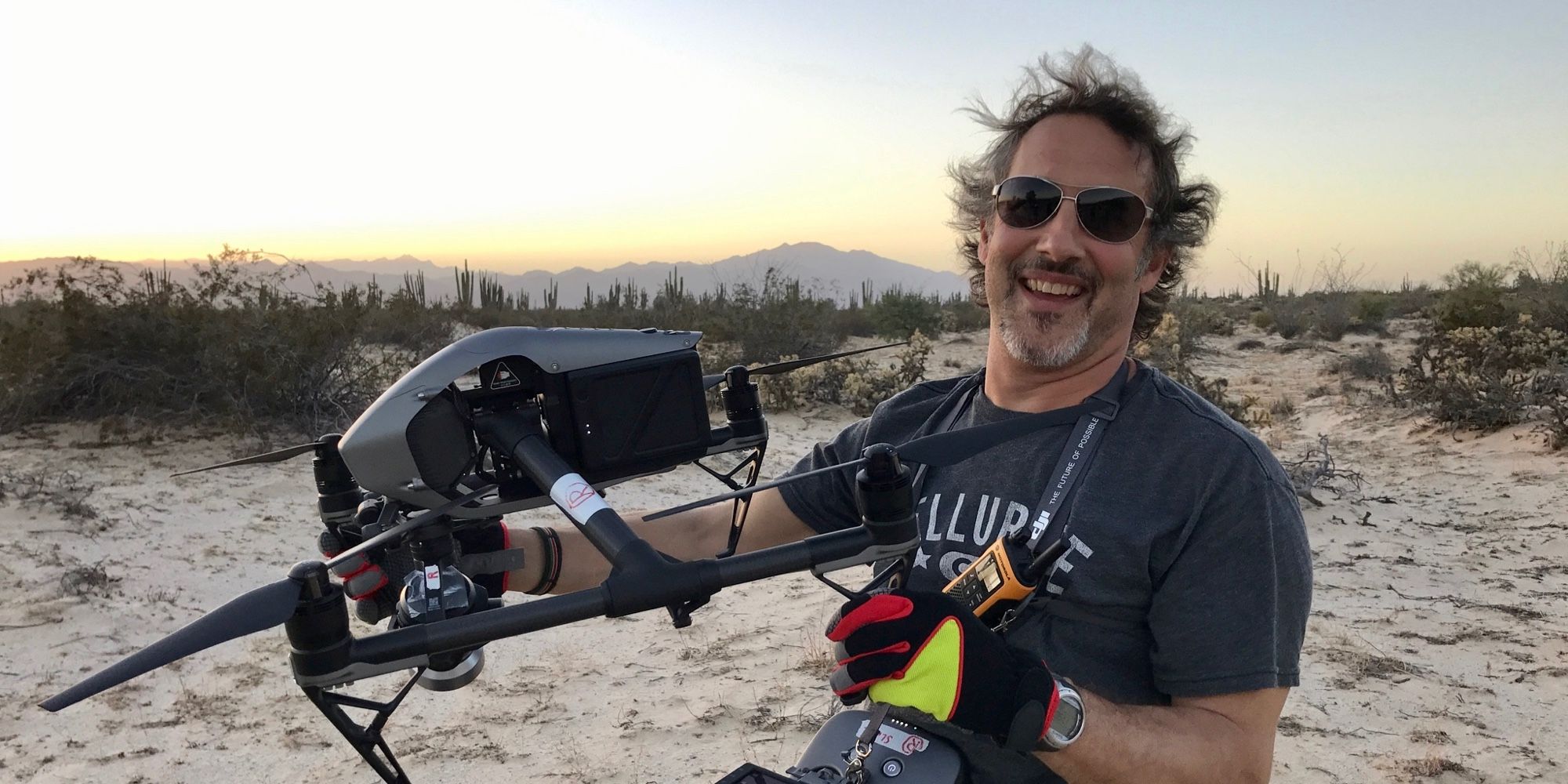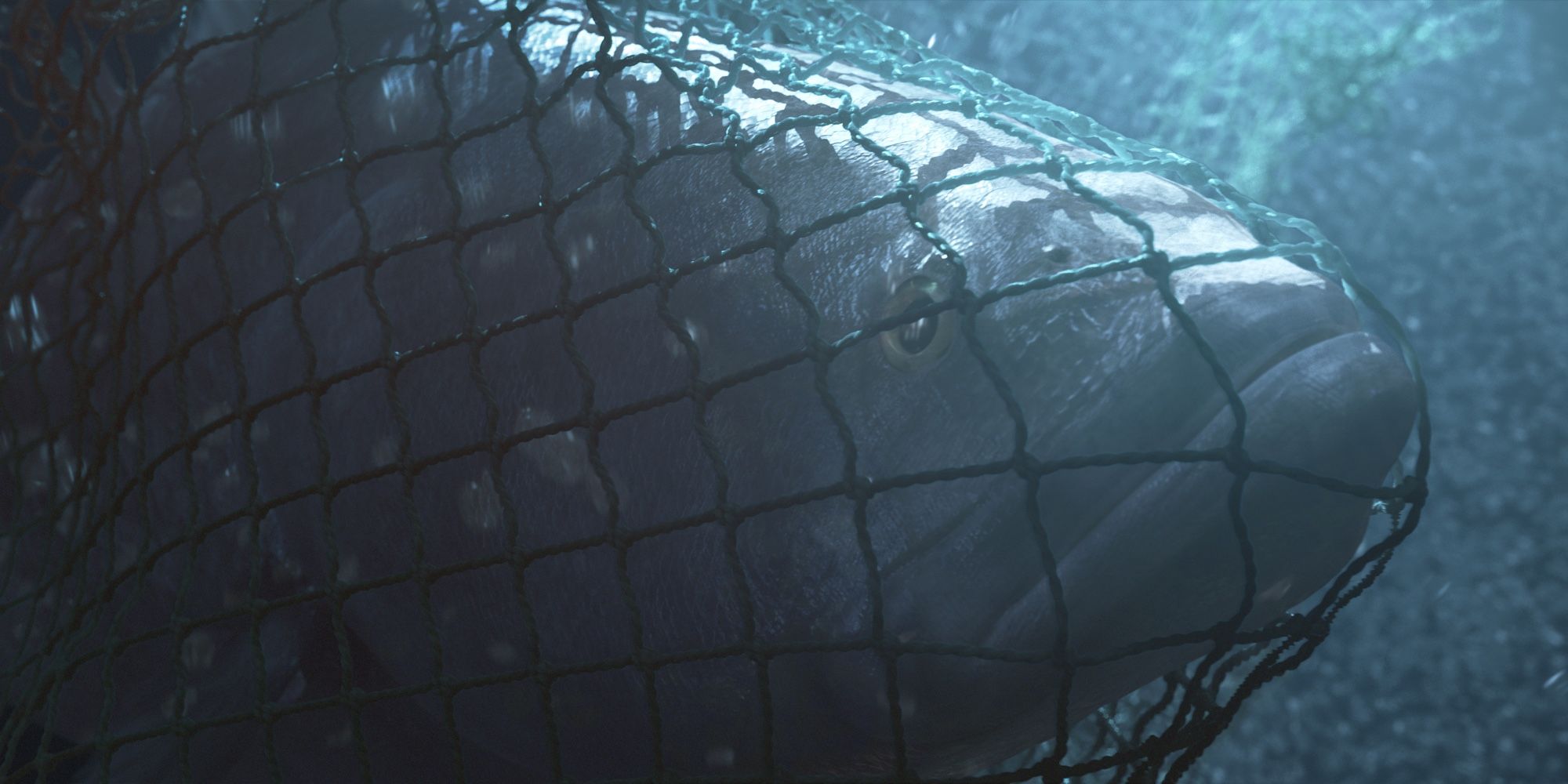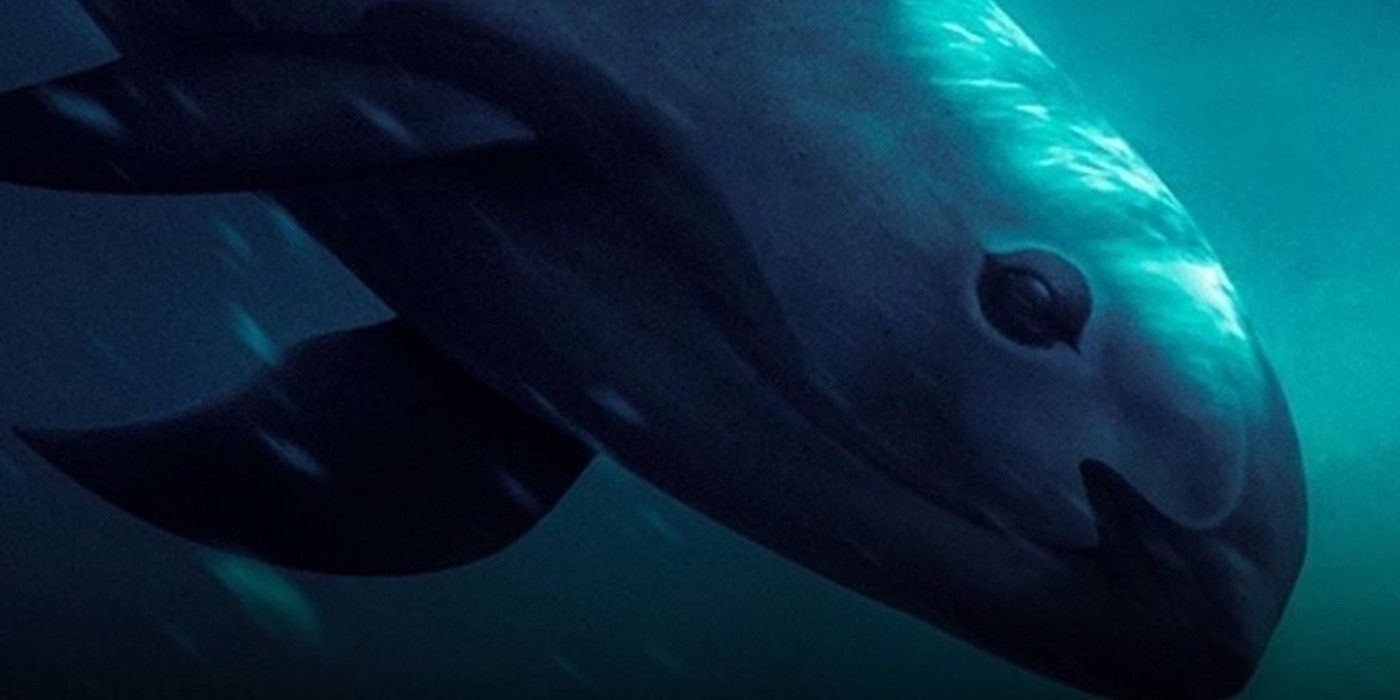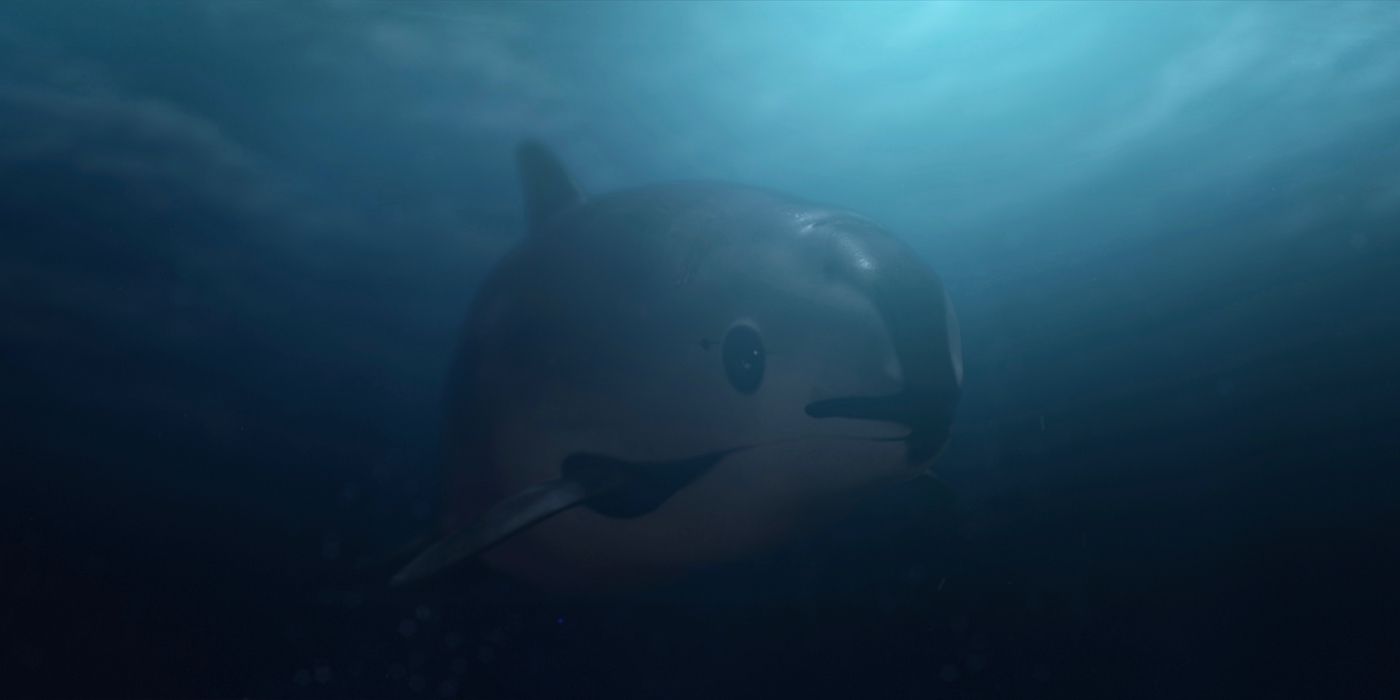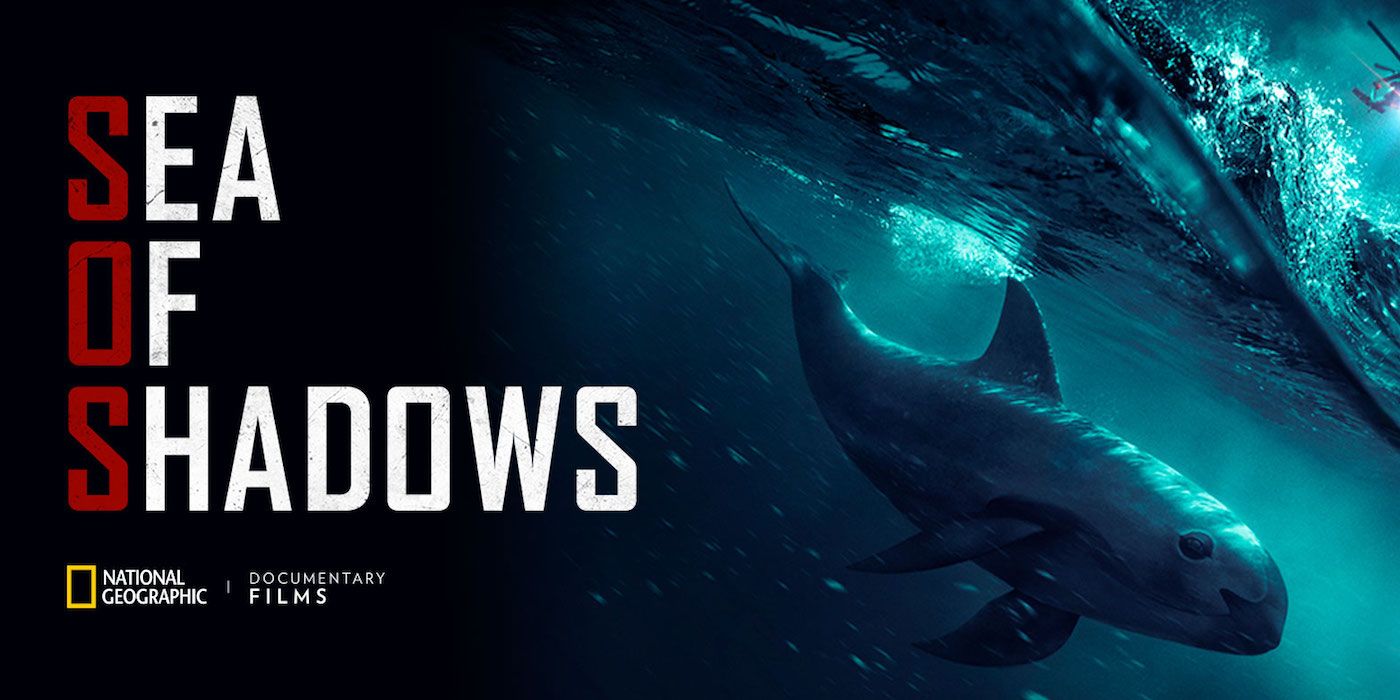Many people may not be aware of the totoaba or the vaquita, but they are currently at the center of an environmental crisis which threatens the stability of an entire region. Mankind exists in a fragile ecosystem, but mankind is not known for handling fragile situations with any sort of grace or sensitivity. Case in point: the Sea of Cortez, home to both the totoaba and the critically endangered vaquita. The story of these beautiful creatures is captured in the new documentary, Sea of Shadows.
A lucrative black market has emerged from the totoaba fish. Its "swim bladder" is widely prized in China for its use in cuisine and nonsense folk medicine that is nonetheless still popular among the traditionalist Chinese. Thus, the Mexican cartels have worked with the Chinese mafia to smuggle the "cocaine of the sea," selling totoaba swim bladders for tens of thousands of dollars. They enlist local fishermen to capture the fish using gill nets, which kill literally everything they capture. The vaquita is trapped in the middle. They only live in the Sea of Cortez, and are so rare, there are only several specimens still alive today. They are innocent victims caught in the middle of this illegal black market, and the hard work of groups like Sea Shepherd and Earth League International may not be enough to save them from their imminent doom.
Sea of Shadows is the new documentary from Richard Ladkani, whose earlier film, The Ivory Game, is considered to be one of the greatest of its kind, and instrumental in the development of new legislation to protect elephants from poachers and ivory traders. Hopefully, Sea of Shadows will do the same for the vaquita. It has to, because it may the only chance these animals have of surviving to see the end of 2019.
Screen Rant spoke to Ladkani on the phone about the film and its subjects, and how the fight to protect these beautiful creatures is about so much more than the beauty of nature; if the vaquita goes completely extinct, it will create dire consequences for the entire ecosystem and plunge the entire region into economic devastation for generations to come.
Sea of Shadows debuts November 9 on National Geographic with a special, commercial-free telecast, followed by a home video release on November 12.
Your movie is fantastic and heartbreaking. I'd like to know if this was intentional, but I'm Honduran on my mom's side, and the plight of the vaquita reminded me of the Honduran people who are stuck in the middle of a horrible situation. These are innocent people who are not involved in these crimes, but they're affected by it every day.
That's a fantastic reference. Nobody has asked that before, but it's absolutely true. The vaquita is just a victim of a war that has nothing to do with it. It's dying and it's going extinct because nobody cares about them. All they want is the totaba, to make millions of dollars. It's the same, in a way, with the few remaining fisherman who are trying to stay away from the cartels, who are hoping to be saved by the government, hoping that the world will wake up to this disaster that is happening that is destroying their fishing grounds for decades to come. That is very much intentional. This is how I also chose my topics. I found those fishermen quite late because they were in the shadows. They were in hiding. Like, the Valverde family, they didn't want to speak to us at first. They were afraid because they had been intimidated by the cartels so much that they felt something would happen to them if they came out and started talking to media people, film people. Then, somehow, our paths crossed and it was amazing because they had made a decision to speak out because they were getting so desperate that this would never end, and they wanted their stories to be told. We need help. We can't take much longer. We need help. Our people need help. If nobody comes to our aid, it will not only be the end of our ocean, but the end of our people. It's very true.
It lays bare the ecosystem that we need to take responsibility for. I feel like it's a story that, despite being so specific in its focus on the totoaba and vaquita, it's also applicable to so many different subjects. This idea of short term profit with zero consideration for the long term implications and costs.
You absolutely... I'm so happy, because you absolutely got it. That's why I wanted to make this film from the very beginning. I saw it as such a symbolic story. The vaquita lives in a place that's only 20 square miles. You have these two villages in this small area, and yet, it is a reflection of what is happening around the world. We have wars all over the place on all the continents. They're not just attacking endangered species, but they're going after our forests, our oceans, our beautiful ecosystems that they want to abuse for drilling, or pipelines to pass through protected lands. It's always the same story. It's for greed and money. The local people are suffering, the environment is dying, and nobody cares because, somehow, there's so much money to be made. In this case, I'm super emotional about it because these are actual criminal gangs. These are real cartels who are used to drug trafficking and human trafficking. And they discover, "Hey, there's some easy money to be made because no one's looking! The cocaine of the sea, we can sell that swim bladder for $100,000 in China. That's huge, so let's go for it!" So they just went in. The cartel is perfectly organized already. They started approaching the fisherman, going, "Hey, wanna make a quick buck? $5,000? Get me that bladder." But what the fishermen don't know is, once you're in the hands of the cartel, you can never leave. They will loan you money to buy those nets, $4000. They will pay for your fuel and they will pay for your crew, but you'd better bring back that swim bladder. If anything happens, if someone takes your net, if something goes wrong, you have to pay them back, or they will hold you accountable. If you don't pay them back, they're just gonna kill you. It's in the movie, how they murdered that one fisherman, J.T., just because he owed them $24,000. He started openly talking about not being able to pay back, he started walking around town, saying "F*** the cartels, leave me alone, it's not my fault," and they just decided, we're gonna publicly execute you as a warning to other fishermen, that this is what happens when you go against the cartel. It's a vicious cycle of death and destruction. That's why I wanted to point such a big spotlight on this case. It's right in our backyard, two hours drive from the U.S. border. People should definitely know this is happening.
Can you talk a little about how you learned about this whole thing and started getting the movie off the groung?
We had just come out of finishing The Ivory Game, the last film I made, for Netflix, and we had a very powerful experience, where the Chinese government actually changed the law to make the trafficking of ivory illegal, two months after the film came out. They invited us to show the film at the Beijing film festival, and they congratulated us on opening their eyes to a problem that needed immediate attention. It was like, wow, a film opened their eyes. Like, decades of NGO work did not get their attention, but a film did. That was remarkable for us. We were empowered, and so was Leonardo DiCaprio, our Executive Producer for The Ivory Game.
Leave it to Leo, right?
It was his idea to make a film about the vaquita next. He said, "I just went to Mexico, and I met with the president, and there's a big problem with the vaquita and the totoaba trade, it's right in our backyard. Nobody's doing anything about it, so if you're interested, I can open doors to Mexico, to the government, to the Navy." He also mentioned Carlos Loret de Mola as being an interesting character to talk to. He's the only journalist covering the story. And if we wanted, he could also put us on those boats that were going out to catch the vaquita. The vaquita CPR mission to put them in safe refuge so they won't go extinct. This was August 22, 2017. I remember that, because it doesn't happen very often that you get a call like that! The only catch was, we had to launch production within six weeks. We had six weeks because the operation to find and put the vaquitas out of the water and into a safe place was going to start on October 1. If we were going to do it, we were going to have to work fast. Terra Mater, our production company, also for The Ivory Game, they said if I'm in, then they're in, so basically, let's do this. So we went in, not really knowing what we were getting into, and it became this deep story that I couldn't have dreamed of. In terms of these being so symbolic for what is happening with our planet.
There's such incredible photography in the Sea of Cortez, and beautiful footage of the vaquita.
The fact that we filmed the vaquita was huge. It had never been filmed before. A vaquita had never ever been on a camera. It had never been seen on TV or anywhere. This was the most elusive, hard-to-film, hard-to-find animal in the world. And we caught it on camera. It took a long time to find it, but as you know, tragically, the entire operation collapsed. It was the most tragic moment I ever experienced shooting films. The buildup, the expectations, the hope was so big that this was going to be the solution. So when it failed, when it died, it was beyond our power of comprehension. It was so wrong and so sad.
Unfair.
But then the war began. We saw the cartel moving in. We saw how everything started to become extremely dangerous. We saw weapons on boats. We started getting threats. "Get out of here, we're taking over." So I called Terra Mater, and I told them, "If you want me to continue shooting, we're gonna need some serious security." They agreed, so we hired a big company, and they gave us bodyguards. Then, very carefully, we continued. It was the most dangerous project I'd ever been involved in.
Do you know why it is that the vaquita can't survive in captivity? I know some animals just can or can't. Is there some specific reason, though?
That vaquita died of a heart attack. It may have been the stress, it may have had some problems, maybe a heart condition. Usually, when you do an operation like that, you don't wait until there's only 30 left. You do it when there's hundreds, at least. If this had started five years ago, there would have been 300 vaquitas. This was a problem. They waited too long, the population was too small. This one failure meant they had to stop because they just could not risk that this would happen with another animal. Not when you're at less than 30 in the world. Some of the scientists said they should have kept going. This happens. When you know nothing about the species, when no scientist has ever been close to a vaquita, when it's never been touched, never been analyzed, of course you don't know if it's going to work. It worked with other porpoises. It did work. But there's one, for example, where it didn't work. There were five porpoises out there; three of them were fine, but one of them had similar reaction like the vaquita, and the vaquita was the unknown. Everyone was hoping it would be like the three others, that it would be fine in captivity, but then it turned out that it wasn't. So, to be honest, I don't know if it could survive in captivity in general. But it is too late to try. We're beyond that point. The only way to save the vaquita is for the government to seriously crack down on the Chinese mafia, to show that there will be repercussions for illegal fishing, that you will be arrested and your boat will be confiscated. There will have to be serious consequences. Number one, they will have to find a solution where fishermen can fish without killing the vaquita. They have to respect... The vaquita refuge is only 20 by 20 miles of territory. It has to be protected. You can fish outside that zone, but stay away from the vaquita. That's the only way.
I'm infuriated by how people can't seem to see how important it is to protect an ecosystem. Species go extinct all the time, but what humans are doing is unnatural and will destroy the habitat.
If the vaquita goes extinct, it will not only be terribly sad because we lost a species. What will happen is, all the NGOs, all the government attention, all the media attention, it will turn away from the area. They will call it a failure and move on. Then, the cartel is going to move in and take 100% control of the area. They're gonna have free reign, and they're gonna kill every last totoaba to make millions of dollars, and in doing so, they're going to kill every other animal in that ocean. The only way to get totaba is with these deadly gill nets that kill everything. They're gonna destroy the fishing grounds for decades to come. The fishermen will have no future beyond the totoaba. It will be completely ruled by illegal gangs. It will be the end of the Sea of Cortez. That's why the vaquita has to survive.
It's incredible. You do such amazing work. It can be so hard to convince people that nature and this ecosystem, which is intangible to some people, is so much more important than making money. One of the most amazing images in the movie is when they find the dead totoaba and destroy the bladder because... Some things aren't worth the blood they cost.
Of course. You have to take the value away from these products. Just like ivory. There should be no value to ivory. There should be no value to the swim bladder. It should be a no-value product. But that's hard because it means convincing the Chinese people that it's not worth buying these things, that they should consider other products, and not endangered species, but that will take a generational change. Very difficult to change the minds of the powerful and wealthy Chinese who believe in traditional Chinese medicine. They're not listening to the West. They're not listening to the Western scientists. They're listening to their doctors, and their old traditions. That's why some of these problems can only be solved by the government. The people, they will always want whatever is offered to them as the next big thing. In China, the good thing is, if the government cracks down and decides to say "no" to something, they're incredibly successful with that. There is no crime in China like you have crime in other countries where it's just rampant shootings and things like that. People are really afraid of the government. That can be an advantage. When the government banned the ivory trade, that was it! No more ivory! It went deep deep deep undercover and into the black market, but it's too small a market to really harm the species today. It's very difficult to sell ivory. With the swim bladder, it's easier, unfortunately, because you can hide them among other swim bladders that are legal, and it feels impossible to convince the people of China to buy something else. We don't have the time. The vaquita will probably be extinct within 12 months if no major movement is happening.
Has there been any response to the film yet?
We are seeing good results. We see hope. The government has taken action. Just a few weeks after the film came out, the Mexican president, for the first time, started talking about the vaquita and the needs of the fishermen. Solutions need to be taken. He visited the region for the first time since taking office. He also announced that there will be 600 additional troops sent to the area, and 14 additional ships, so they are sending more forces. They are reacting. We had a huge media storm when the film came out. It was the highest media hits, biggest media hits in history for a documentary released in Mexico. We had the media on our side. They were going ballistic. That had its effect. We are now seeing a lot of movement. But at the same time, we need monitoring on the ground. Earth League International did an amazing job in uncovering that the Chinese are behind it. The Chinese Mexicans living in Tijuana, the mafia. He submitted his report, his intelligence brief to the government, and they just announced to us that they mapped out the entire syndicate thanks to these charts, with names and phone numbers. They now know there seems to be five individuals involved, and the next step is now to go after them. They're going after the Chinese, the president is talking about solutions... But what we need is independent monitoring on the ground. Earth League International is sending in new teams in the coming months to monitor the situation, to look at the black market trade. There will be Asian investigators, there will be more Mexican undercovers. They will look at what is really going on, and then they'll report to the media, like, what's happening, and they'll provide evidence, if needed, to prove it's just a show, the government is not doing the job. Or they'll report good news! That they are doing their job and it is getting better. That's why the film is so important. We gave people an emotional tool to understand a problem and then to make the decision on whether they're going to act on it or not.
I love the water and I hate the mafia, so this movie really hit me on all sides.
Perfect. (Laughs) Join the cause. Join the movement. If people want to know more, seaofshadows.film, a great website we have, has all the information, a petition to sign, help us spread the word. Every signature sends an e-mail to the Minister of Environment with an action plan. We have this organization, Earth League International and Sea Shepherd, which are on the front lines and need donations. If you want to help, that would be a great way to help them. They're all non-profit. So spreading the word is a key component of our success.

